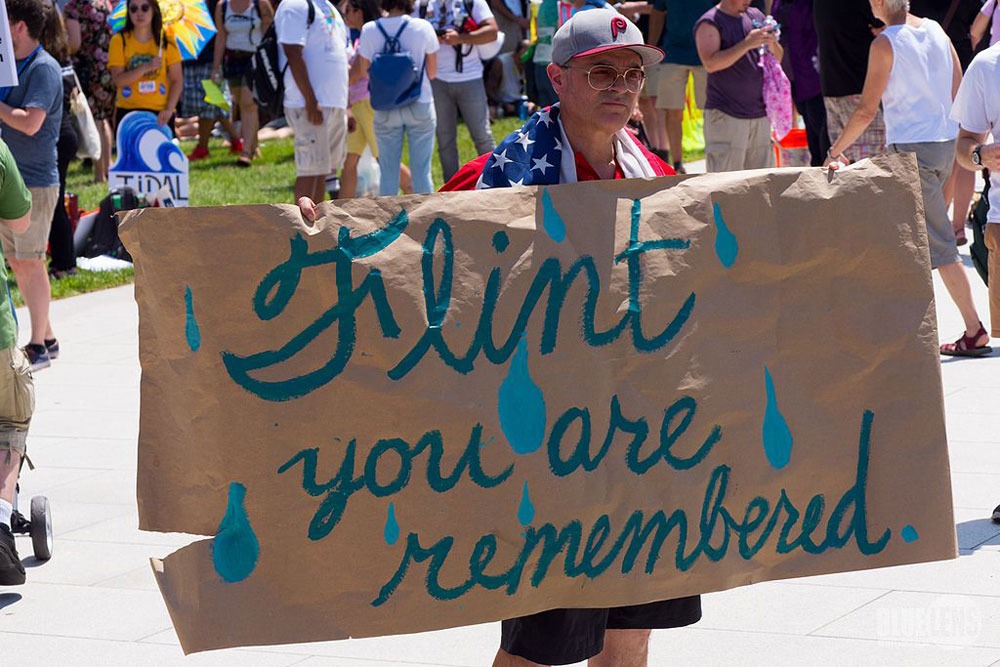
June 13, 2019; The Root and Associated Press
Citing weaknesses in the criminal investigation of the Flint Water Crisis, prosecutors for newly elected attorney general Dana Nessel dropped all charges against eight defendants awaiting trial. Residents of Flint were surprised and frustrated by the announcement.
Flint activist LeeAnne Walters told the Associated Press, “It feels kind of degrading, like all that we went through doesn’t matter. Our city was poisoned, my children have health issues, and the people responsible just had all the charges dropped against them.”
Michigan Solicitor General Fadwa Hammoud and Wayne County Prosecutor Kym Worthy were tapped by AG Nessel to head the Flint Water Crisis investigation. After reviewing the work performed by the Republican AG’s investigative team, they have concluded that “contrary to accepted standards of criminal investigation and prosecution, all available evidence was not pursued.”
As evidence of weaknesses in the investigation, Hammoud and Worthy point out that private law firms representing various State of Michigan government departments had “a role in deciding what information would be turned over to law enforcement.” Prosecutors and AG Nessel also have concerns about evidence collection. Former Governor Rick Snyder’s cell phone was not examined, and prosecutors have now taken steps to seize it.
Sign up for our free newsletters
Subscribe to NPQ's newsletters to have our top stories delivered directly to your inbox.
By signing up, you agree to our privacy policy and terms of use, and to receive messages from NPQ and our partners.
Dropping charges against defendants is not a unique legal strategy, especially when a case has moved from one set of prosecutors to another. Hammoud and Worthy believe the approach prevents them from building, “on a flawed foundation.” Speaking to the New York Times, Flint’s mayor, Karen Weaver, stated, “I think this way, they may have the evidence they need to be able to hold them accountable and throw away the key.”
What is unusual is that prosecutors have been emphatic that they “are not precluded from refiling charges against the defendants” or adding new charges and new defendants, a statement that may be seen to give hope to Flint residents that justice is coming.
From a legal perspective, this new strategy may pay long-term benefits by ensuring that prosecutors have all the evidence they need to get the convictions the residents of Flint deserve. However, in the short term, the new legal strategy gives the impression that the chances for justice for Flint have decreased dramatically.
Prosecutors want the residents of Flint to buy into a new investigation and to trust the government to deliver justice. Under other circumstances, the new legal strategy would be procedural, but in this situation, where so many are affected so profoundly and where the government failed miserably, this move has implications for trust and morale. Prosecutors have a significant chore ahead of educating and convincing the residents of Flint that these changes will deliver great justice.
Melissa May, a Flint water activist, told the New York Times, “My heart breaks for the families that have lost loved ones. This is not justice for them. It just seems like a political ploy. The only thing this tells me is our lives don’t matter.”—Skip Lockwood













